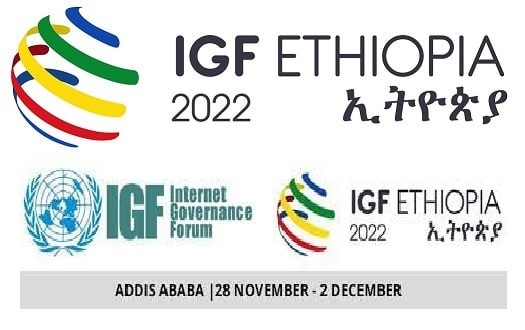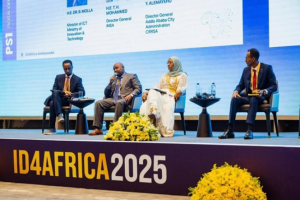
BY KFLEEYESUS ABEBE
The advent of internet and digitalization of world has dramtically changed our lives in terms of connectivity, business, exchange of ideas that ultimately impact on culture, society and governance. Tech Business News in its article “impact of the internet on modern society” said; “ Today, the Internet connects people from all over the world and allows for a global conversation. It has altered society in many ways, from cultural exchange to social and economic development. It has rewritten many rules of engagement, and the Internet has enabled many new ways of thinking and connecting.” The digital technology is enabling millions to work, study and socialize safely online. The right to access internet hence considered as basic right as it is closely linked with freedom of expression and opinion, freedom of assembly and other fundamental rights including the right to developement.
Despite it is agreed that internet is a basic right, many people aren’t yet accessing internet for many factors such as access, affordability, quality, and relevance. The UN’s Broadband Commission for Sustainable Development estimates that nearly 3.6 billion people remain totally unconnected to the Internet by any measure. This digital divide has also resulted other inequalities for example in access to health care, economic and educational opportunities among people in the world. The United Nations accordingly formed Internet Governance Forum (IGF) on 2006 to facilitate a common understanding of how to maximize Internet opportunities and address risks and challenges that arise.
While the digital divide remain worrisome, the technology has also a dark side if not governed or managed properly. The internet has been used to misinform, spread fake news and hate speech eventually creating choas, violence, instabilty. It is also distressing to witness women getting abused, privacy of individuals overriden, bullied or threatened online. These incidences are real risks to international progress to development, democracy, protection of human rights and promotion of science. Governments, tech companies and social media platforms therefore are expected to take responsibilty and prevent online bullying and deadly disnformation.
Internet Governance Forum (IGF) is tasked with convening relevant stakes to come up with rules and innovative ways to narrow digital divide and avoid unwantetd consequence of the technology. It has been holding several discussions of public policy issues pertaining to the Internet. Its 17th round of discussion dubbed “Resilient Internet for a Shared Sustainable and Common Future” has been going on here in Ethiopia begining from November 28. Opening the forum, Ethiopian Prime Minister Abiy Ahmed, indicating the opportunities and challenges of going digital, said it is essential to focus on Trust, equity and security of cyberspace.
“We need to have data strategies to strengthen privacy standards. We need to prevent feeding Artificial intelligence industrial development and surveillance capacity of third parties. Data governance should also aim at harmonizing rules in the digital ecosystem to spare economic growth while protecting individual rights. African countries should be able to influence standards in a way that it corresponds with our values and enables us to participate in Innovative emerging Technologies. This is why the focus should be on building trust equity and Security in cyberspace.”
The priemer noted the 2022 IGF host Ethiopia is indeed successful in increasing digital practice in the country and in consequence gained social and economic benefits. He also said that Ethiopia’s ICT and digital transformation Journey has been marked by key progress Milestones aligned with the five sub teams of 17’s IGF. “Considering our large and growing population, improving connectivity and expanding accessibility been a priority with iinvestments being made in infrastructure expansion, opening up the Telecom sector to private investors and building government digital infrastructure. Internet coverage shows an increase from 19 million users in 2017 to 13 million in 2022. Rolling out 4G network in popular towns and 5G Network in major cities is accelerating connectivity.Over 2, 300 high schools throughout the country have internet access. “
The National digital strategy of Ethiopia has already seen ICT could catalyze country’s development progress. “We remain steadfast in our commitment to achieving full sovereignty increasing industrialization, boosting tourism maximizing gains from our mining sector and promoting a green and climate conscious culture all this are being supported through mainstreaming ICT of which the internet is key.”
The Internet Governance Forum (IGF) brings together innovators, big tech executives, young people, ministers, and parliamentarians. It is a very good chance for Ethiopia to showcase its effort in expanding digital access and promoting science in general. The priemer took the opportunity to invite participants to visiting the recently inaugurated Ethiopian Science musieum.
United Nations Secretary-General António Guterres has addressed the forum in a recorded message. In his message, the Secretary-General noted it’s in organization’s goal that governments agree on Global Digital Compact at the 2024 Summit of the Future. The UN chief said the Global Digital Compact insists activities for universal connectivity, guarranting of freedom of speech, right to online autonomy and privacy and fostering responsible use of data. He emphasized how critical it is to ensure safety, equity and protection of the digital space.
“We are seeing the growing use and abuse of data. Our data is being used to shape and manipulate our perceptions, without our ever realizing it. Governments can exploit that data to control the behavior of their own citizens, violating human rights of individuals or groups. We need to keep working for a safe, equitable and open digital future that does not infringe on privacy or dignity.”
Improving Quality and ensuring sustainability of the service is also top on the agenda. Panelists pointed out cooperation among multi stakeholders and policy framework need to be put in place to ease internet fragmentation globally.
Internet Governance Expert, Policy Analyst and Consultant Wim Degezelle told The Ethiopian Herald at the sidelines of the forum that there is enough infrastructural capacity in the internet sector. The provision of quality infrastructure plays a paramount role in avoiding the internet fragmentation and blackout.
Degezelle further stated that cooperation among multi stakeholder is very important to avoid the existing problem and enhance connectivity. Another panelist Edmund Chen said for his part that the value of the internet is immense in connecting the global world and what causes the internet fragmentation is that the law and regulations of the country aims at protecting their sovereignty and national interest.
The forum is an initiatiion of governments and tech companies to commit themselves to narrow the digital divide, ensure quality and sustainability of internet and protect the internet from exploitation and misusage. It is also expected the particiapants to reach aggreement on UN chief proposal of Global Digital Compact at the 2024 Summit.
The Ethiopian Herald December 2/2022




